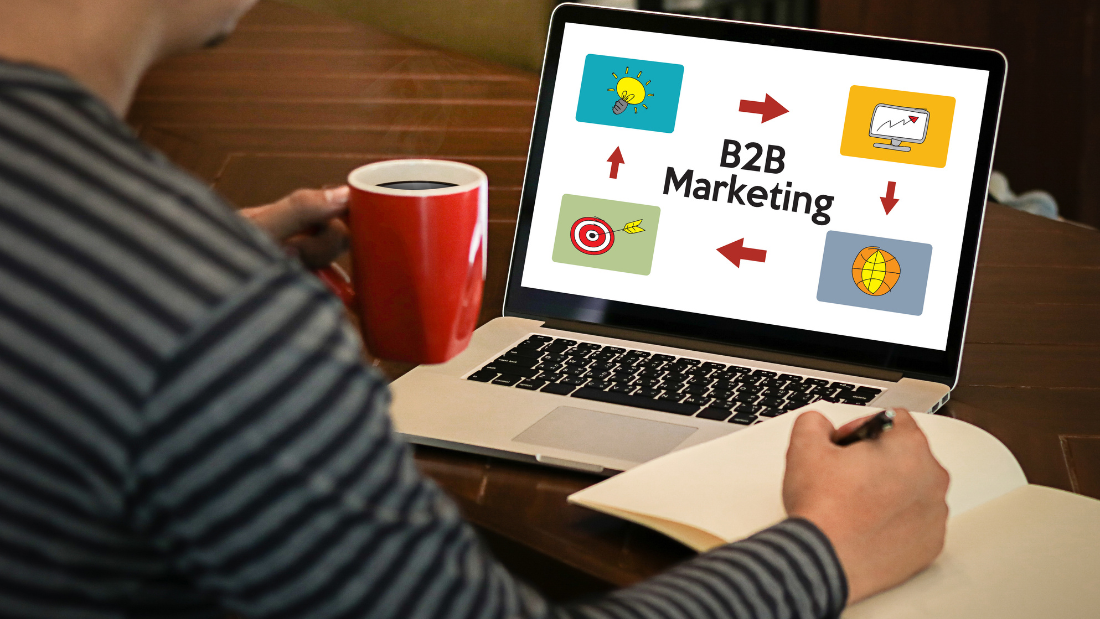How to Choose the Best B2B Marketplace
A B2B marketplace is a website that connects businesses with clients at other businesses so that they can engage in buying and selling activities.
A B2B marketplace gives a provider the ability to retain product data, add their whole product catalog to the market, and access aggregate demand all in one spot. The platform for the B2B Marketplace assists suppliers in closing more deals, which expedites the procedure for buyers.
B2B Marketplace On the internet, marketplaces are open spaces where customers can peruse a range of goods. These online markets offer options, price comparisons, and a less complicated shopping experience. Marketplaces provide benefits for both the user and the business, such as personalized delivery and quicker customer care responses.
Through a single online platform, A global B2B marketplace enables buyers to connect with both vendors, easing procurement processes and dramatically reducing costs. Like sellers, buyers can fully or partially automate the workflows associated with any procurement process.
What qualities do you think you should seek when choosing an online B2B marketplace?
Due to this positive feedback loop of rising scale, which also allowed ECommerce businesses a ton of possibilities in every industry, digital B2B platforms became a profitable business model.
Let's talk about the essential characteristics of a wholesale B2B marketplace:
- Relevance to Your Industry: One of the primary considerations in choosing a B2B marketplace is its alignment with your industry or sector. An industry-specific platform offers targeted solutions, relevant product offerings, and a community of like-minded businesses. Such marketplaces understand the unique challenges and needs of your industry, making it easier to find products, services, and partnerships that cater specifically to your requirements. This relevance can lead to more meaningful connections, increased efficiency, and a higher likelihood of successful transactions.
- Trustworthiness and Security: Trust is the foundation of any successful business relationship. When selecting an online B2B marketplace, prioritize platforms with a proven track record of trustworthiness and security. Look for features that ensure the authenticity of users and listings. Verified business profiles, certifications, and user reviews provide transparency and help you make informed decisions. Secure payment gateways, data encryption, and robust privacy policies are essential to safeguard sensitive information and financial transactions. A trustworthy platform minimizes the risk of fraud and fosters a secure environment for business interactions.
- User-Friendly Interface: The usability of a B2B marketplace plays a significant role in your overall experience. An intuitive and user-friendly interface simplifies navigation, minimizes the learning curve, and enhances efficiency. A well-designed platform makes it easy to search for products, connect with potential partners, and manage your transactions. A clutter-free and logically organized interface ensures that both buyers and sellers can swiftly navigate the platform, enabling seamless interactions and a more enjoyable experience.
- Effective Communication Tools: Effective communication is the cornerstone of successful B2B interactions. Look for a marketplace that offers robust communication tools to facilitate discussions, negotiations, and collaboration. Secure messaging systems, real-time chat features, and integration with communication platforms can enhance your ability to engage with potential partners. Clear communication channels help build relationships, resolve queries, and streamline the decision-making process, ultimately leading to more successful transactions.
- Global Reach and Diversity: The reach of a B2B marketplace can significantly impact your business growth. Opt for a platform with a diverse and extensive user base that spans across different geographic regions and industries. A global reach exposes you to a wider range of potential partners, suppliers, and buyers. It opens doors to cross-border collaborations and allows you to tap into new markets. A diverse user base also fosters innovation and provides insights from various perspectives, enriching your business experience.
- Transparency and Information Accuracy: A reputable B2B marketplace ensures transparency in product/service listings, pricing, and terms of engagement. Clear and accurate information allows you to make informed decisions. Look for platforms that provide detailed product descriptions, high-quality images, and transparent pricing structures. This transparency minimizes misunderstandings and reduces the risk of disputes. Accurate information empowers both buyers and sellers to evaluate offerings effectively and negotiate terms with confidence.
- Ease of Transactions: The ease of conducting transactions on a B2B marketplace is crucial. An ideal platform should provide seamless payment options, straightforward checkout processes, and clear invoicing. Integrated payment gateways and secure payment methods streamline the buying and selling process. A user-friendly transaction process saves time and eliminates friction, enhancing your overall experience on the platform.
- Customization and Personalization: Every business has unique requirements. A B2B marketplace that offers customization options allows you to tailor your profile, preferences, and notifications according to your needs. Personalization features enable you to receive relevant recommendations, stay updated on specific product categories, and streamline your interactions. This level of customization enhances your ability to discover valuable opportunities efficiently.
- Support and Assistance: Responsive customer support can make a significant difference in your experience in a B2B marketplace. Choose a platform that offers timely and effective customer support to address any queries, concerns, or technical issues. Access to knowledgeable support staff ensures that you can navigate challenges seamlessly and receive assistance when needed, contributing to a smoother overall experience.
- Analytics and Insights: Data-driven insights empower businesses to make informed decisions. A B2B marketplace that provides analytics tools allows you to track your performance, monitor sales trends, and gain valuable insights into buyer behavior. Analytical capabilities enable you to refine your strategies, optimize your offerings, and adapt to market dynamics effectively.
- Cost Structure and Value: Evaluate the marketplace's cost structure and consider the value it offers. Some platforms charge subscription fees, transaction fees, or commissions. Assess whether the costs align with the benefits you expect to gain from the platform. A transparent cost structure ensures that you can make financial decisions with clarity.
- Integration Capabilities: Many businesses use various tools and software for their operations. A B2B marketplace that offers integration capabilities can streamline your workflow. Integration with existing business systems, such as inventory management or CRM software, can enhance operational efficiency and reduce manual tasks.
Benefits of using a B2B E-Commerce marketplace often include the following:
- Increased Reach and Market Access: B2B e-commerce marketplaces provide businesses with an extended reach beyond their local boundaries. They offer access to a wider audience of potential buyers and sellers, enabling companies to explore new markets and forge valuable partnerships.
- Enhanced Efficiency and Simplified Processes: These marketplaces streamline the procurement process by offering user-friendly platforms for product discovery, ordering, and payment. Automation of tasks reduces manual effort, speeds up transactions, and minimizes errors.
- 24/7 Accessibility and Convenience: B2B e-commerce operates around the clock, allowing participants to engage and transact at their convenience. This eliminates time zone constraints and traditional business hours, facilitating quicker decision-making.
- Transparency and Information Availability: B2B e-commerce platforms offer comprehensive product information, specifications, pricing details, and reviews. This transparency empowers buyers to make informed decisions without the need for direct interactions.
- Improved Customer Experience and Loyalty: B2B E-commerce prioritizes user experience, making it easier for buyers to browse products, compare options, and manage orders. The seamless buying process and personalized recommendations enhance customer satisfaction and encourage repeat business.
Launching a B2B startup demands careful planning, a clear value proposition, and strategic execution. By following a comprehensive roadmap and leveraging platforms like GOFOREXPORT, you can establish your presence in the global market and foster fruitful connections with buyers and suppliers. Remember, success lies in understanding the dynamics of B2B interactions, addressing industry challenges, and consistently delivering value. Embrace the power of digital tools and platforms to elevate your startup's reach and impact. Ready to embark on your B2B journey? Connect with Go For Export today and witness the transformational possibilities. Contact Us For inquiries and partnership opportunities, reach out to us at sales@goforexport.com. Let's collaborate to shape the future of B2B connectivity together.


